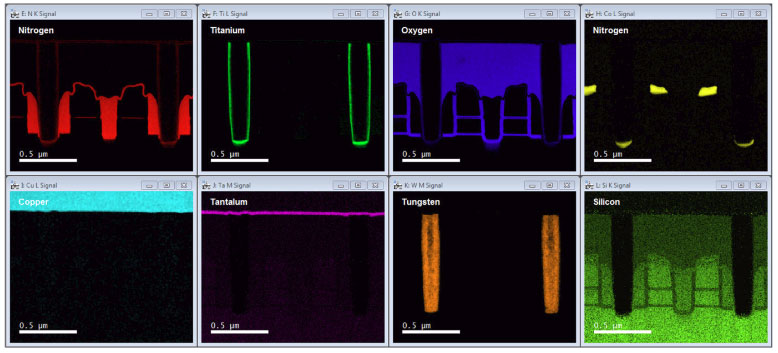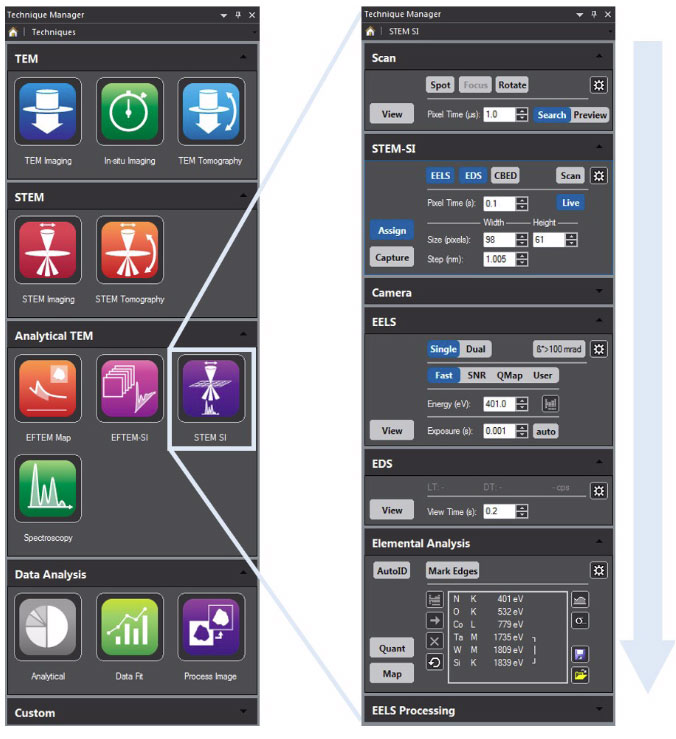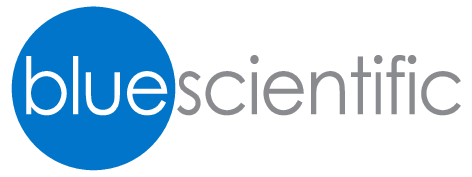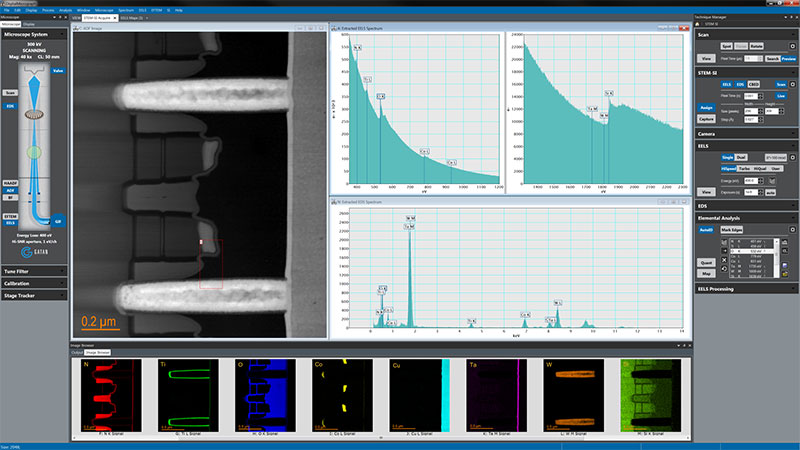Gatan Microscopy Suite
EM software for experiment control and analysis
Gatan Microscopy Suite (GMS) is the industry standard software for electron microscope experiment control and analysis.
- Guided workflow – Takes you through experiment setup, execution and analysis.
- User-friendly workspace – With tabs and data layout manager, to help you manage and organise data.
- Live data section – Separate from prior experiments.
- EELS routines – Easy-to-use, model-based EELS analysis for higher quality results.
- For experienced users – Complete control with DigitalMicrograph scripting.
Contact us for more information and quotes:
+44 (0)1223 422 269 or info@blue-scientific.com

Element maps of a semiconductor device, using STEM EELS spectrum imaging data. The model-based fitting approach separates overlapping edges clearly and generates maps with superior signal-to-noise ratio. The EELS routines are carefully optimised for speed, giving you virtually instant results.
Guided Workflow
The guided workflow begins by choosing your technique, with simplified device control, data acquisition and analysis. When you select a technique (left) the interface expands to guide you through the technique, from top to bottom (right).

Gatan Microscopy Suite 3
Digital Imaging Modules
[custom_table style=”3″]
| In-Situ Explorer | Full in-situ control and data handling |
| In-Situ Video | Synchronises images with data from in-situ devices – more details… |
| TEM AutoTune | Automatically adjusts focus, astigmatism and misalignment |
| DigitalMontage® | Stage and optics control – stitch images together perfectly |
| HREM AutoTune | Facilitates HREM assays. Automatically adjusts key imaging parameters of your TEM microscope focus, stigmation and beam tilt |
| DIFPACK module | Diffraction analysis: automated selection of electron diffraction (SAED) patterns and high resolution lattice images of crystalline samples |
| HoloWorks module | Fourier-optics simulation and simpler off-axis hologram processing |
[/custom_table]
[custom_table style=”3″]
EELS, EFTEM & STEM Modules
| STEM Diffraction imaging | Acquire diffraction patterns pixel-by-pixel as a 4D data set |
| Advanced AutoFilter suite | Automated multi-element EELS and EFTEM data acquisition |
| GIF Tridiem® 863 upgrade to Gatan Microscopy Suite 2 | AutoFilter palette streamlines all steps from filter alignment to data acquisition |
[/custom_table]
[custom_table style=”3″]
Tomography Modules
| 3D Tomography Acquisition | For tomographic tilt series acquisition experiments in TEM, STEM or EFTEM mode |
| 3D Reconstruction | Three-dimensional tilt series alignment and reconstruction |
| GPU Accelerated Reconstruction | Reconstruct 3D tilt series 100x faster than standard methods |
| 3D Visualisation | Study 3D data with volume rendering, isosurfaces, ortho slices and more |
[/custom_table]
Techniques
- TEM imaging
- In-situ imaging – more details…
- STEM imaging
- STEM SI
- Diffraction
- EELS
- Energy dispersive X-ray spectroscopy (EDS)
- Energy-filtered TEM (EFTEM) mapping
- EFTEM SI
- TEM tomography
- STEM tomography
- EFTEM tomography
- Image processing
- 3D reconstruction
- 3D visualisation
- Cryo-EM (Latitude-S)
- Cryo-tomography (Latitude-T)
- Cathodoluminescence (CL)
- Serial block-face imaging (SBFSEM)
- SEM imaging
- SEM SI
Linear Least Squares Fitting
Least squares fitting by multiple linear least squares and non-linear least squares fitting is a core workflow for advanced analytical data processing in Gatan Microscopy Suite. This webinar provides a detailed overview of the new tool, with a variety of example applications.
Model-Based EELS Quantification & ELNES Phase Mapping
Built on the existing model-based EELS quantification framework, ELNES phase mapping enables pre-acquired reference spectra (or standards) to be used for quantification in addition to the existing set of calculated cross-section models. This significantly improves the accuracy of the final quantification results by providing truer edge shapes that can be fitted over large energy ranges. ELNES phase mapping also enables the separation and quantification of material phases, by importing multiple reference spectra for the same ionisation edge and using them concurrently.
Python Integration
Scripting capabilities provide a high degree of customisation for new acquisition or processing methods. Python integration is now built directly into GMS 3, enabling Python code to be run directly from the existing scripting interface. All native Gatan data objects and existing hardware controls are directly accessible in Python code. This unlocks endless possibilities for data capture, processing, analysis and visualisation.
Fast Compositional and Chemical Analysis with GMS 3
30 minute tutorial presented by Gatan at M&M 2020, demonstrating how to use EELS and EDS together for a full chemical analysis.
Spectrum Image Processing Methods, Tips and Tricks
A 1 hour tutorial presented at M&M 2020, about how to process and analyse spectrum image datasets (EELS, EDS and diffraction) in GMS 3.4. Covering methods such as EELS quantification and mapping with standards, curve fitting, multivariate statistical analysis and Python scripting, as well as common shortcuts and utility functions to streamline your workflow.
Exporting Videos from In-Situ Datasets
Saving In-Situ Datasets
Interacting with Live In-Situ Data
In-Situ Data Management: Temporal Reduction


